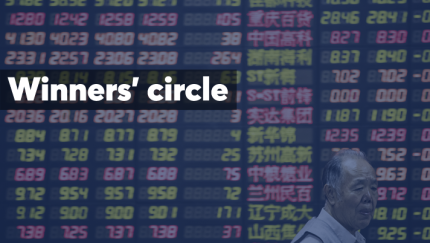The recent rout in emerging market stocks is taking its toll on one of the largest ETFs tracking the sector, as investors have yanked $870 million from the ETF this week, the most since November 2016.
The iShares MSCI Emerging Markets ETF (EEM) had an outflow of $553 million on Tuesday, the most for a single day in well over a year, according to Bloomberg data. On Wednesday, investors pulled another $316 million from the fund, which is operated by BlackRock and is the most heavily traded emerging markets ETF.

The withdrawals are coming as emerging market equities have recently faltered. The MSCI Emerging Markets Index gained almost 16% over the past 12 months, but it’s down around 2% this week and 2.5% since the start of April.
Trump’s call for tariffs on steel and aluminum imports, and subsequent worries of a trade war, have recently taken a toll on emerging markets investments.
“This looks like hot money taking some profits after a nice rally before this shakiness turns into a full blown downturn,” said Bloomberg Intelligence ETF analyst Eric Balchunas.
-
The firm's success bucks a long-held premise that investing in developing markets requires active managers responding to sudden shifts in political risk.
April 18 -
New research has found that funds with a high percentage of assets in ETFs underperform funds that hold stocks.
April 3 -
As planners flock to these products, sponsors are differentiating their offerings to better stand out.
March 6
The buy-and-hold crowd may still be holding on, though, as assets have stayed put for similar but cheaper funds like the iShares Core MSCI Emerging Markets ETF (EMG) and the Vanguard FTSE Emerging Markets ETF (VWO), Balchunas said.
Treasury volatility and a dollar rally have hurt emerging-market assets over the past two weeks, leading stocks and local-currency bonds to erase this year’s gain and sending the spread on external notes to the highest in 14 months.
EEM has over $40 billion in assets. More than 26% of the portfolio is dedicated to China, 15.5% to South Korea and 11% to Taiwan. Banks, internet companies and semiconductor firms are the top industries among the fund’s holdings.






